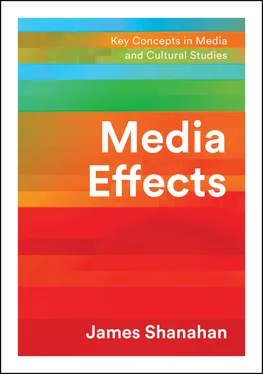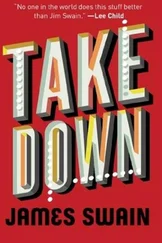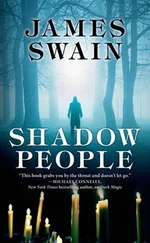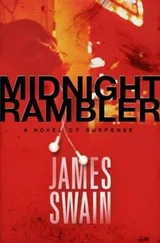Overall, Lippmann’s stance on the media question was negative, leading to conclusions that it would be difficult to harness media power toward deliberative democracy. He imagined a possible solution to create a sort of “information bureau” that could be in charge of making sure that information was presented more objectively. Information would be “professionalized,” creating standards of ethics and truthfulness that would guard against the excesses of the propaganda era. Such an idea, of course, was never implemented, although later theories that argued for a “social responsibility” ethic of journalism (Siebert, Peterson, & Schramm, 1956) came close to Lippmann’s ideas. It would not be the first time that policy suggestions based on media effects ideas would find it hard to be implemented.
After World War I, when radio brought electric instantaneity onto the scene, the stage was set for a mass media system that could reach national and even global audiences at any and every moment. The period between the two World Wars was fraught with troubling political and social developments that had media implications (and some also thought they were caused by the media). Ideas about mass communication seemed particularly credible in explaining phenomena such as the growth of Fascism and Communism, with their directed propaganda focused on the largest possible audiences and a monolithic message. The stunning media success of a figure such as Adolf Hitler was instructive and troubling. Practitioners of both Nazi and Communist propaganda portrayed their activities as having a scientific basis, and a sense of evil genius lurking behind the use of the new techniques came to be widely accepted in the West. While some early thinkers about mass media had argued that mass media could be harnessed to the creation of democracy at a mass level, others highlighted the dark-side mass political movements that were encouraged and arguably created by media that could convene and address this mass. The power of the new mass media could go in both directions. For democracy and for more authoritarian-oriented systems, questions that implicated mass behavior were very likely to suggest media as possible sources or causes of such behavior. The mass began to acquire a personality of its own, and the rise of the authoritarian systems was convincing Americans that the effects of mass media might not always be positive. Crowds and mobs, with cruel regularity, were punishing the idea of democracy around the globe, with its future uncertain.
The decade of events leading up to World War II catalyzed a lot in terms of what would become media effects research. It was a war effort that virtually all sectors of society enthusiastically participated in. In the same way that expert practitioners of communication (such as Hollywood directors and actors) joined their efforts to the war cause, scholars of communication and related fields wanted to apply their abilities as well. This meant solving questions related to propaganda. Lasswell’s early work had established among top-level social scientists the importance of understanding how propaganda had worked in World War 1, and there was every intention to use it to positive effect on the American side. It was in this period that a select group of scholars at elite institutions really began focusing efforts toward a scientific exploration of the direct impact of messages on audiences, in ways that we can see as a direct predecessor of the media effects tradition.
There are some competing accounts of how this research developed and what it led to. One story suggests that the influential social scientists who later came to be seen as the “founding fathers” (Schramm, 1954) of the field of mass communication research gathered their efforts toward a principled data-based examination of the effects of propaganda and other kinds of mass communication. Arguing against the supposedly-held public fear that mass communication had an almost irresistible power to “inject” its messages into unwitting audiences, these researchers revealed that the actual effects of mass communication, when studied empirically under controlled conditions, were modest. Their dismantling of the “hypodermic needle theory” of media thus led to something that was accepted quite readily for a long time in most empirical examinations of media effects: that the effects of media were actually quite modest (Katz & Lazarsfeld, 1955; Klapper, 1960).
A second version of this story agrees that this group of researchers began with a focus on understanding propaganda and looking for ways to help the US cause in World War II with scientific perspectives on the effects of mass communication. But the story diverges with the group’s post-war continuation of the research with government and military funding, often with a Cold War and anti-Communist agenda. Rather than setting forth a relatively quieting and self-congratulatory message of mass communication as something that a strong democracy could tolerate, researchers were looking for ways to bring mass media questions into areas of “administrative” usefulness such as psychological operations, focusing on a propaganda of a different, pro-US, type (Sproule, 1989; Simpson, 1994).
Whether one accepts one version or the other, it’s clear that the activities of these seminal scholars, especially in contexts sponsored by the Rockefeller Foundation, were a major part of what we now know as the “effects paradigm.” “Communication” was a term that was selected somewhat consciously to convey a more scientific impression than the word “propaganda,” and “mass communication” entered the lexicon as a coinage that would characterize at least the next five decades of media research. It was an alternative to studying propaganda, which seemed to be an ideologically polluted endeavor.
With the invention of mass communication, Lasswell also put on the table a simple list of research questions that could focus the minds of those studying the topic in the war years: “ Who says what in which channel to whom with what effects ?” (Bryson et al., 1940; Lasswell, 1948, p. 37). The formulation proved to be an enormously appealing way to simplify the complicated task at hand of reducing mass communication research to component questions that would be susceptible to study. Two parts of the question (which channel , with what effects ) gave birth to, or at least crystallized, what most researchers in communication generally came to understand their job to be: figure out how media have effects.
Usage of the terms mass communication and media effects grew from there (see Figure 1). Important early books that institutionalized it as a name for a field include Lazarsfeld’s The people’s choice (Lazarsfeld, Berelson, & Gaudet 1940); Katz and Lazarsfeld’s Personal influence (“a new focus for the study of mass media effects”, 1955, p. 13; “the over-riding interest of mass media research is in the study of the effectiveness of mass media attempts to influence,” pp. 18–19); Berlo’s The process of communication (1960); and finally Klapper’s The effects of mass communication (1960). Further influential texts and handbooks have emerged as well. What is ironic is that most of the textbooks that have enshrined media effects as a field of study have taken on what came to be known as the “limited effects” perspective. They argued that earlier views of mass communication had over-estimated media power, perhaps out of fear. They suggest: when media effects questions were submitted to empirical tests, the fears were not substantiated. Thus, we have the oddity of a field – media effects – that often negates or questions whether such effects exist at all. It became an issue that would animate, and still animates, inquiry.
Читать дальше












